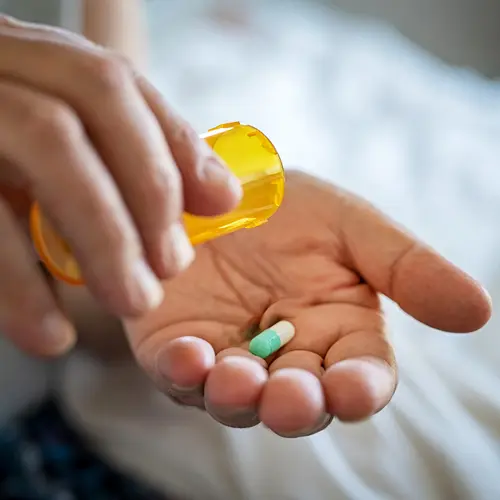Mast cell activation syndrome is a condition that causes mast cells to release an inappropriate amount of chemicals into your body. This causes allergy symptoms and a wide range of other symptoms.
Mast Cell Activation Syndrome
Mast cells are blood cells that are part of your immune system. They help you fight infections, but they are also involved in allergic reactions. Mast cells live longer than normal cells, and they grow in your bone marrow, your gastrointestinal tract, your skin, and your airways.
When you come into contact with an allergen, or substance that causes allergies, mast cells release chemicals called mediators. Some chemicals are released right away, and some take longer.
One of those chemicals is histamine, which might cause allergy symptoms. These include:
- Expanding blood vessels
- Itchy skin
- Swollen skin
- Mucus buildup
- Tightened airways
- Wheezing
- Headaches
- Anaphylaxis
In a healthy person, these chemicals help protect and heal. In someone with mast cell activation syndrome, they have a negative effect.
Sometimes mast cells can be activated or triggered by things like:
- Infections
- Medications
- Insect venom
- Reptile venom
- Fragrances
- Stress
- Exercise
- Food
People who have mast cell activation syndrome might have a lot of allergy symptoms and lots of episodes of anaphylaxis without a clear cause.
Mast Cell Activation Syndrome vs. Mastocytosis
Sometimes mast cell activation syndrome is confused with mastocytosis. These are both types of mast cell disease, but they are different conditions.
Mastocytosis. Mastocytosis is a rare disease in which extra mast cells gather in organs in your body like the spleen, liver, gut, and skin. This is usually caused by genetic changes causing mast cells to make more of themselves.
This causes you to have too many cells and have a random chemical release that can overwhelm your body and make you sick. These cells might grow fast, be very sensitive, and constantly and randomly release chemicals.
This rare disease can cause skin growths and a blood disorder called leukemia.
Mast cell activation syndrome. This condition doesn’t cause extra cells to gather in your organs. Instead, it happens when mast cells release too many chemicals and cause these allergy symptoms.
What Causes Mast Cell Activation Syndrome?
The exact cause of mast cell activation syndrome is unknown. It is sometimes called an idiopathic condition because it's not caused by any other disease or related to a clear allergy or cause.
People who have this syndrome might have a hard time pinpointing the exact thing that triggers allergic reactions. New triggers might come up a lot.
Signs and Symptoms of Mast Cell Activation Syndrome
There are many different symptoms that affect lots of your body systems all at once. These can happen after eating foods, smelling certain fragrances, exercising, and many other things.
Some key signs include:
- Symptoms in more than one system
- Symptoms that come and go or are cyclical
- Lots of different triggers
- Difficulty figuring out what the triggers are
- A dramatic change in symptoms
Some key symptoms include:
Diagnosing and Treating Mast Cell Activation Syndrome
Getting diagnosed can be complicated. It’s common for patients to see lots of different doctors. This can happen because there are usually lots of symptoms that might look like other conditions, and it's hard to pinpoint their exact cause.
Your doctor might test for tryptase, histamine, and prostaglandin levels, but there are no definitive tests. There are three specific things your doctor will look for, though:
- Allergy symptoms and other symptoms in two or more organ systems that keep coming back or are chronic
- Higher than normal levels of tryptase, histamine, or prostaglandins in your blood
- Getting better after using antihistamine medications or other drugs that block chemicals released by mast cells
If you meet all three of these criteria, your doctor might diagnose you with mast cell activation syndrome.
There is no cure for the condition. You will need to avoid triggers and use medications.
Antihistamine medications and other drugs that block these chemicals can help. These can include:
- First-generation H1 blockers
- Diphenhydramine
- Hydroxyzine
- Second-generation H1 blockers
- Loratidine
- Cetirizine
- Fexofenadine
- H2 blockers
- Ranitidine
- Famotidine
- Aspirin
- Leukotriene inhibitors
- Montelukast
- Zafirlukast
- Corticosteroids
- Monoclonal antibodies
- Omalizumab
If you have anaphylactic reactions, your doctor might also give you an auto-injector epinephrine pen to use in emergencies.
Sometimes people also react to ingredients in the medications, which means it can take some time to find the right treatment.
Stress can also cause mast cells to be activated. Plus, having symptoms from mast cell activation syndrome can cause more stress and worry. This can lead to a vicious cycle of symptoms. It's important to manage your stress.
You can:
- Talk to a therapist
- Connect with your friends
- Rest
- Use mindfulness techniques
- Do gentle exercise
- Practice your hobby
Taking care of your general and emotional health and well-being is important.
